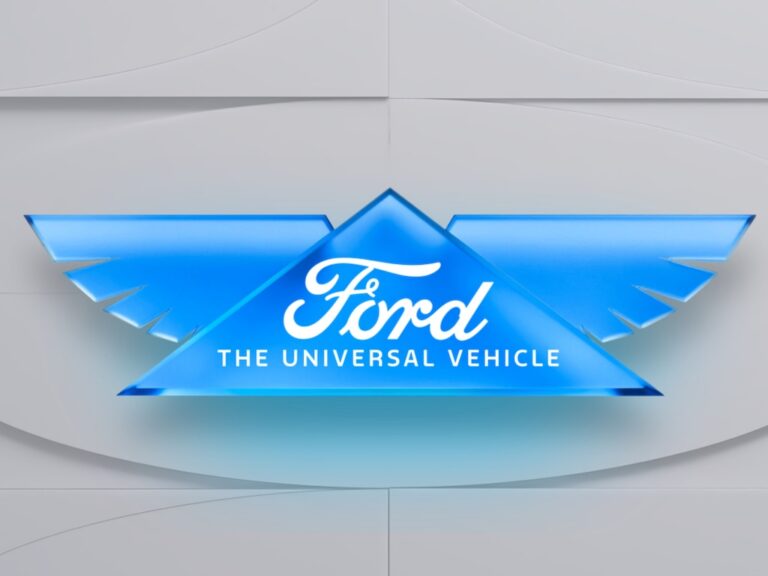Shockwave! Ford's Groundbreaking $30,000 Electric Pickup, 'Built in America,' Roars to Life!

Ford is ushering in a new era for its electric vehicle initiatives, shifting a significant portion of its development efforts to a newly established EV Development Center (EVDC) in Long Beach, California. This facility, located amidst hangars dedicated to commercial air travel and spaceflight, serves as the hub for a formerly clandestine 'skunk works' team. Led by Alan Clarke, a former Tesla engineering head who joined Ford three years prior, this team is meticulously crafting a universal EV platform destined to underpin a diverse range of future Ford electric vehicles, beginning with an affordable midsize electric pickup truck and a compact SUV, both slated for a 2027 debut.
The development methodology employed at the Long Beach EVDC is designed to fundamentally disrupt traditional automaking processes. Rather than adhering to a linear, often iterative flow through segregated design, aerodynamics, packaging, and engineering departments, Clarke's 350-strong team of engineers, designers, and technical staff operates collaboratively. This integrated approach, mirrored by teams in Palo Alto, California, and Dearborn, Michigan, fosters direct interaction—aerodynamicists working alongside designers, closures engineers with chassis engineers, and body engineers with powertrain experts. The core objective, as articulated by Clarke, is not merely to challenge existing preconceptions and constraints but to cultivate empathy and mutual understanding among team members regarding their respective challenges. This collaborative synergy can lead to innovative solutions, such as consolidating redundant parts, thereby enhancing quality while simultaneously reducing costs, a benefit that remains transparent to the end customer.
The ambitious goals set for the EVDC team by Ford CEO Jim Farley are clear: to construct a low-cost, modular EV platform with a starting price point of approximately $25,000. This platform is envisioned to be globally competitive with both Chinese EV manufacturers and Tesla, and critically, to achieve profitability within its first year. The new architecture, dubbed the 'Universal EV platform,' emphasizes significant cost savings through engineering ingenuity, streamlined manufacturing processes, and a drastic reduction in parts count, complexity, and overall weight.
Key manufacturing innovations include 'unicasting,' which involves utilizing larger, simpler casting techniques, and a substantial reduction in the number of fasteners and wiring—reportedly 4,000 fewer feet of wiring. Furthermore, the platform will incorporate a newer, lower-cost LFP-style battery unit that is designed to be structural, effectively forming the vehicle's floor. This advanced battery is projected to deliver equivalent range to current expectations while being a third smaller in size, implying a 33% reduction in capacity. Doug Field, Ford's chief EV, digital, and design officer, highlighted a paradigm shift in assembly, introducing an 'assembly tree' concept. Unlike traditional assembly lines where large components like dashboards are often contorted into body structures, this new method allows for multiple sections of the vehicle to be assembled in parallel before being joined towards the end of the process, a significant departure from century-old manufacturing practices.
The first vehicle to emerge from this innovative process will be the midsize electric pickup truck, confirmed by Ford, with production set to take place at the automaker's Louisville, Kentucky, assembly plant. This plant already assembles internal-combustion F-Series Super Duty trucks. Farley has teased impressive features for this truck, including extensive range, the capability to power a home for up to six days during outages, and passenger space comparable to a Toyota RAV4. It will feature both a usable rear bed and a front trunk (frunk), and a curious claim of being 'faster than the Mustang twin-turbo' (likely referring to the entry-level single-turbo EcoBoost Mustang). Beyond the pickup, the Universal EV platform is designed to be highly versatile, supporting various other body styles, including multiple SUVs and potentially a sedan, with simple line drawings of these profiles already previewed. While the exact visual details of this 'next Model T moment' are yet to be fully revealed, and the first truck is not expected to roll off the Louisville plant floor until 2027 at the earliest, Ford remains confident that its accumulated EV experience, manufacturing expertise, and newfound agility will position its new Long Beach-developed affordable EVs for considerable success, despite intensifying global competition.
Recommended Articles
Ford's Revolutionary $30,000 Electric Truck Set to Redefine EV Market

Ford is redefining its electric vehicle strategy with a new development center in Long Beach, California, focusing on a ...
Ford's Shocking EV Shift: Goodbye to Ford Escape and Lincoln

Ford is ushering in a "Model T moment" with a new, super affordable, all-electric pickup truck built on a revolutionary ...
Cadillac's Luxury EV SUV Tested: Is This Rivian-Beater the Future of Electric Escalades?

Cadillac expands its electric SUV offerings with the 2025 Optiq Sport and 2026 Vistiq Sport, targeting compact and three...
2026 Jeep Cherokee: Liberty's Return with a Pricey Twist & Hybrid Power

After a three-year absence, the 2026 Jeep Cherokee returns with a boxier design, a hybrid-only powertrain, and improved ...
Jeep Unleashes 2026 Cherokee: Hybrid Power, Bold Design & Shocking Price Tag Revealed!

The 2026 Jeep Cherokee makes its much-anticipated return, showcasing a radical redesign inspired by its iconic XJ-genera...
You may also like...
7 Ways to Network Without Feeling Fake

Discover 7 practical ways to network authentically without feeling fake. Build genuine relationships, add value, and cre...
When Meat Fell From the Sky: The Bizarre Story of the Kentucky Meat Shower of 1876

On March 3, 1876, Bath County, Kentucky, witnessed one of history’s strangest events: a shower of raw meat falling from ...
Cleanliness, Colour, and Contradictions: How Racism Warps the Hygiene Debate Between Black and White

A deep dive into the cultural clash over hygiene between Black and white communities, exposing how racism has long disto...
How Social Media's Grip on African Youth is Fueling a Silent Anxiety Crisis

Social media is more than a tool for connection; for a new generation of African teens, it's a source of anxiety, body i...
How Africa's Economic Resilience and Innovation are Redefining Global Power

Africa is projected to be the world's second-fastest-growing region, but what's driving this? This article goes beyond t...
Confronting Africa's Mental Health Crisis

Mental health issues are a growing, yet overlooked, crisis in Africa. This article explores the cultural, economic, and ...
Nottingham Forest Sack Nuno, Appoint Ange Postecoglou in Bold Tactical Shift

Nottingham Forest has appointed Ange Postecoglou as its new manager, replacing Nuno Espirito Santo. This move signals a ...
World Cup Heartbreak: Super Eagles' Qualification Hopes Dented by South Africa Draw

The critical 2026 FIFA World Cup qualifier between South Africa and Nigeria ended in a 1-1 draw, jeopardizing Nigeria's ...